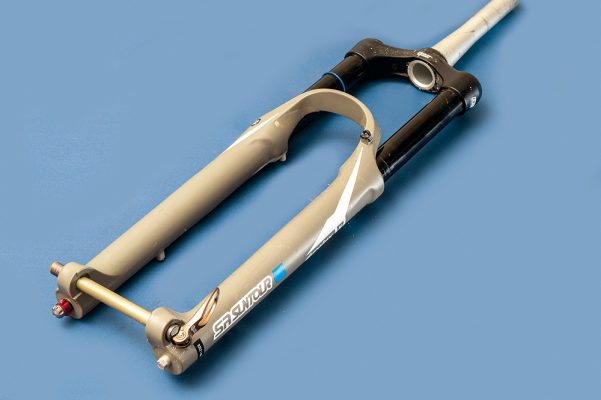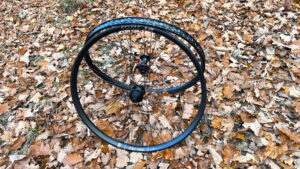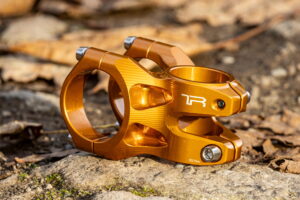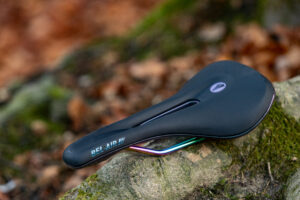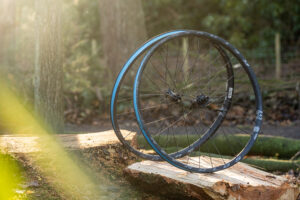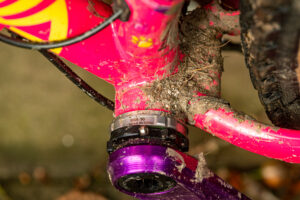The beefy SR Suntour Durolux R2C2 uses 36mm stanchions, a hollow-crown construction and a casting incorporating a slick and effective bolt-on mudguard
SR Suntour Durolux R2C2 Boost EQ fork review
The SR Suntour Durolux R2C2 was the cheapest fork in our recent group test of the best mountain bike forks by £100, and that’s even in this top-tier guise with full adjustability. There’s absolutely no scrimping on features to keep costs down either; this R2C2 version has four-way adjustability with quality aluminium dials that control both high and low-speed compression and rebound damping – something you only get elsewhere by spending an extra £500 on the Fox 38.

Four-way damping adjustment is great value at this price point
Suntour has been tweaking the Durolux for years, and this latest version has a revised EQ air spring with self-balancing negative and positive chambers and a proportionally larger negative chamber. Other features include lower-leg air-bleed ports at the seals – they need an Allen key to release any pressure, but then also double up as grease ports. Squirt a syringe of lubrication oil into the lowers to ensure everything stays buttery without doing a full lower-leg service. The RCC2 fork here also uses a hollow-forged crown to hold the stanchion legs, which saves a further 35g over cheaper models.
Suntour’s damper architecture is (like DVO’s) fully shim-based on both compression and rebound. This makes it dynamic to react to all shaft speeds differently, and it’s also fully sealed inside a cartridge to save weight and reduce the chance of air and oil mixing to cause cavitation (foamy bubbles) which makes the fork inconsistent. The internal floating piston, that compensates for oil displacement as the damper rod moves in and out of the cartridge, is spring-loaded, rather than air-backed (for simplicity and reliability according to the brand).
All the Durolux’s adjustability works as advertised and there’s a huge range of clicks (30 on rebound – we ended up in the middle), but the low- speed compression damping might be a tad firm for some, as we basically ran it wide open (one click maximum). The rebound circuit is also the noisiest on test by a margin, with a distinct whooshing sound every time the Suntour cycles.
Switching back-to-back from this fork during a day testing at Dyfi Bike Park, the Durolux offered loads of support and continually felt calm handling big impacts, heavy landings and bike park terrain without getting flustered. Compared to DVO’s Onyx, it was immediately clear there’s considerably less tracking and sheer grip and a fair bit less of a hyperactive/fluid feel to track every miniature bump and terrain contour. This also means if you slam the front wheel into an off-axis root or rock, it can occasionally struggle to absorb the impact and ping the front wheel in a different direction, causing a slight loss of tracking and control. Weirdly, we’d expect this to translate to less hand comfort and sore arms on longer descents, but the Durolux actually proved pretty good in this regard.
If you’re a heavier or hard-charging rider who knows what they’re doing with all the dials, the SR Suntour Durolux R2C2 is a sensible option with plenty of support and control at an excellent price. There’s accurate tuning, even if the compression damping veers to the firmer side of the spectrum, and there’s a lot of support and stability for hard-hitting terrain. For under £700, the damping performance here is quality, considering it offers fully-featured rock-solid performance ready for Alpine action or full-on enduro racing that’s way more sophisticated and assured than a basic, lower-tier model from a big-name brand at a similar price. Bear in mind, however, it’s not the most supple or sensitive fork around.




